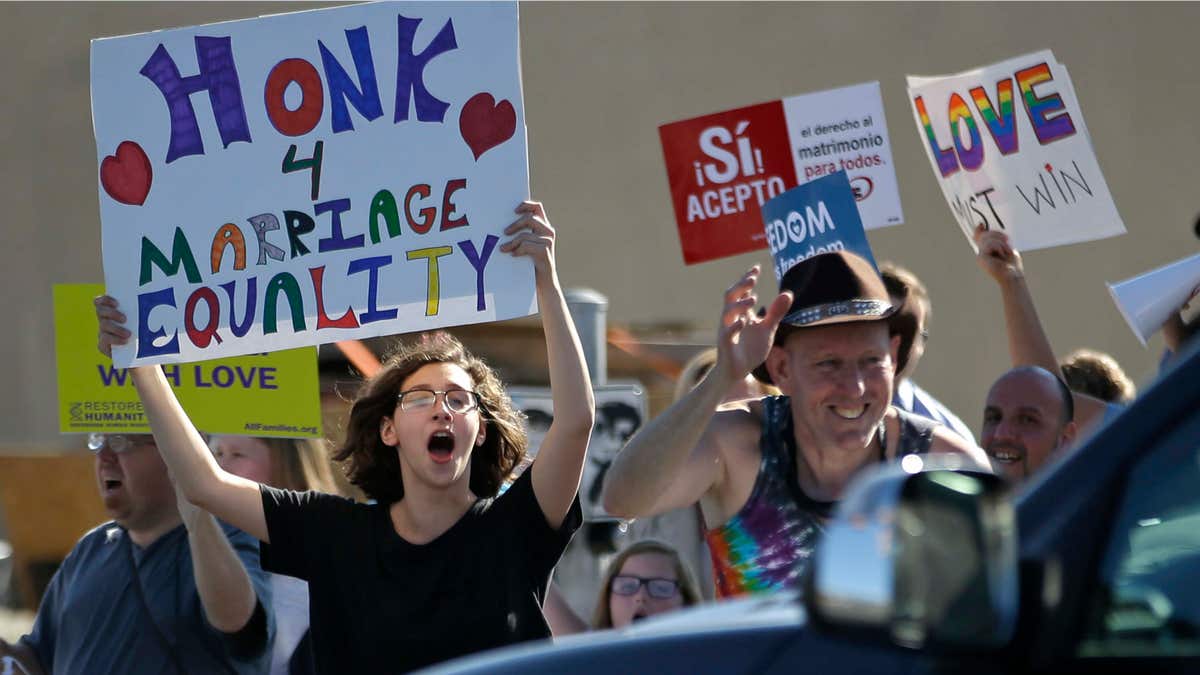
April 28, 2015: Same-sex marriage supporters hold signs encouraging drivers to honk in support of marriage equality during a rally. (AP)
Science magazine Thursday formally retracted a highly touted article about a study gauging the ability of openly gay canvassers to shift voters’ views toward support for same-sex marriage.
Columbia University political science professor Donald Green, one of the article's authors, requested the retraction on May 19, saying co-author Michael LaCour had been unable to produce the raw data that was used in the study.
Science magazine decided to go through with the retraction after its own investigation even though LaCour did not agree with the decision.
The magazine said it based its retraction on misrepresentation of cash incentives for survey participants, false statements about financial sponsorship of the survey, and the inability to produce original data, “which makes it impossible to verify or alleviate concerns about statistical irregularities.”
LaCour said in a statement on his website “I will supply a definitive response on or before May 29, 2015. I appreciate your patience, as I gather evidence and relevant information.”
The article received widespread news coverage from most major outlets, including The Associated Press, The New York Times and the Washington Post.
The article detailed a study which concluded that openly gay canvassers were far more effective than straight canvassers in shifting voters’ views toward support for same-sex marriage.
The study claimed that opinion changes produced by the straight canvassers tended to fade within a few weeks and those voters reverted to their previous, less favorable views of same-sex marriage. It said that the changes in viewpoints produced by the gay canvassers persisted nine months later.
Green began to have misgivings about the study after the integrity of the data was called into question by two graduate students at the University of California, Berkeley, who tried to launch a similar study.
"I am deeply embarrassed by this turn of events and apologize to the editors, reviewer, and readers of Science," Green wrote last week.
Reasons for Thursday's retraction were detailed as follows by Science magazine:
—"Survey incentives were misrepresented. To encourage participation in the survey, respondents were claimed to have been given cash payments to enroll, to refer family and friends, and to complete multiple surveys. In correspondence received from Michael J. LaCour's attorney, he confirmed that no such payments were made."
—"The statement on sponsorship was false. In the report, LaCour acknowledged funding from the Williams Institute, the Ford Foundation, and the Evelyn and Walter Haas Jr. Fund. Per correspondence from LaCour's attorney, this statement was not true."
—"LaCour has not produced the original survey data from which someone else could independently confirm the validity of the reported findings."
The Associated Press contributed to this report.
